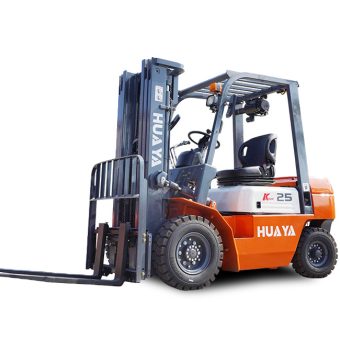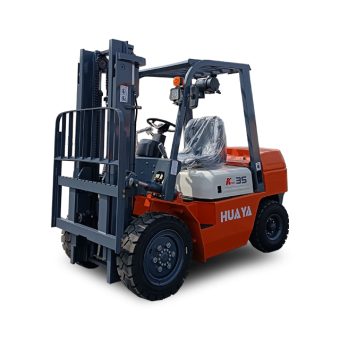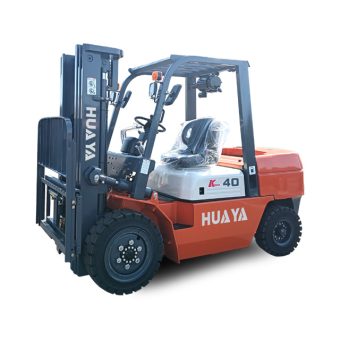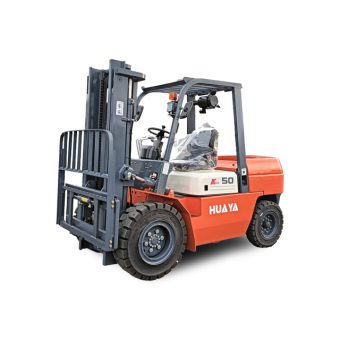
Noticias
En el ámbito de equipos de manipulación de materialesA menudo, los términos "preparador de pedidos" y "carretilla elevadora" se utilizan indistintamente. Sin embargo, existen claras diferencias entre ambos. Veamos en qué se diferencian y por qué son importantes.
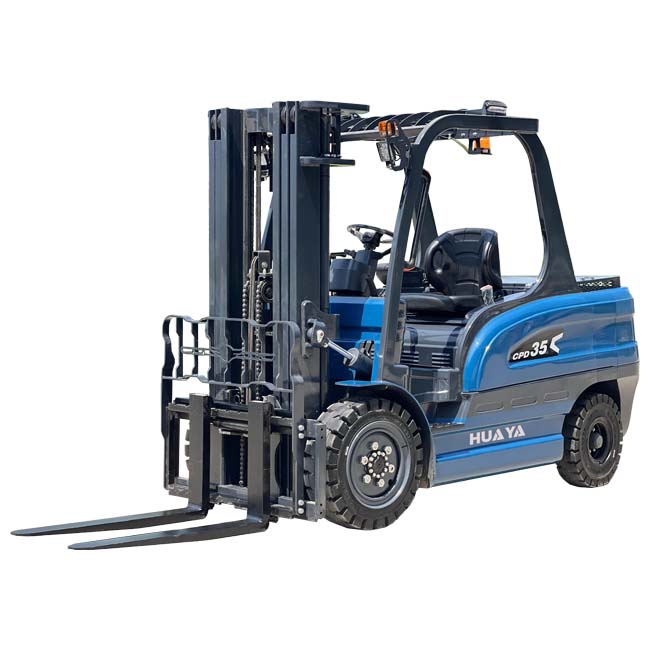
Cuando se trata de operaciones de almacén y logística, contar con el equipo adecuado es crucial para la eficiencia y la seguridad. Tanto los recogepedidos como las carretillas elevadoras desempeñan un papel esencial en el movimiento y la gestión del inventario, pero tienen propósitos diferentes y destacan en entornos distintos.
Las recogepedidos son máquinas especializadas diseñadas para recoger artículos individuales o cajas de estanterías altas en pasillos estrechos. Disponen de una plataforma que permite al operario alcanzar artículos a varias alturas de forma segura. Estas máquinas son especialmente útiles en almacenes con espacio limitado, donde es esencial maximizar el almacenamiento vertical.
Una de las principales ventajas de las recogepedidos es su maniobrabilidad y precisión en espacios reducidos. Gracias a su diseño compacto y a su capacidad para moverse por pasillos estrechos, pueden acceder al inventario en lugares inaccesibles para las carretillas elevadoras tradicionales. Esta agilidad las hace ideales para tareas que requieren movimientos frecuentes y un posicionamiento preciso.
Las recogepedidos están equipadas con elementos de seguridad como barandillas, arneses y plataformas antideslizantes para proteger a los operarios que trabajan en altura. Estas características mitigan los riesgos asociados al trabajo en posiciones elevadas, garantizando un entorno de trabajo seguro para el personal del almacén.
Las carretillas elevadoras, por su parte, son máquinas versátiles que se utilizan para una amplia gama de tareas de manipulación de materiales, como cargar, descargar, apilar y transportar palés de mercancías. A diferencia de los recogepedidos, las carretillas elevadoras utilizan horquillas o palas para levantar y mover cargas pesadas, lo que las hace indispensables en sectores como la fabricación, la construcción y el transporte.
Las carretillas elevadoras se presentan en varios tamaños y capacidades, desde pequeños modelos eléctricos adecuados para uso en interiores hasta grandes máquinas diésel capaces de manipular cargas pesadas en entornos exteriores. Su capacidad de elevación y su potencia las hacen indispensables para mover objetos voluminosos o de gran tamaño con eficacia y facilidad.
Mientras que las recogepedidos están diseñadas principalmente para su uso en almacenes con suelos lisos y nivelados, las carretillas elevadoras están fabricadas para funcionar en una gran variedad de terrenos, como grava, asfalto y superficies irregulares. Esta adaptabilidad las hace adecuadas para aplicaciones en exteriores, como obras de construcción, almacenes madereros y puertos de embarque.
Funcionalidad: Las recogepedidos están diseñadas para recoger artículos individuales de estanterías altas en pasillos estrechos, mientras que las carretillas elevadoras se utilizan para levantar y transportar cargas paletizadas.
Maniobrabilidad: Los preparadores de pedidos destacan en espacios reducidos y pasillos estrechos, mientras que las carretillas elevadoras son más versátiles y pueden funcionar en diversos entornos.
Características de seguridad: Las recogepedidos están equipadas con dispositivos de seguridad especializados para trabajar en altura, mientras que las carretillas elevadoras dan prioridad a la estabilidad de la carga y la visibilidad del operario.
Aunque tanto los recogepedidos como las carretillas elevadoras desempeñan funciones vitales en la manipulación de materiales y las operaciones de almacén, tienen propósitos distintos y ofrecen ventajas únicas. Entender las diferencias entre estos dos tipos de equipos es esencial para elegir la herramienta adecuada para el trabajo y optimizar la eficiencia y la seguridad en cualquier lugar de trabajo.
En conclusión, un preparador de pedidos no es lo mismo que una carretilla elevadora, sino más bien un equipo complementario que satisface necesidades específicas dentro de un almacén o un entorno industrial.
